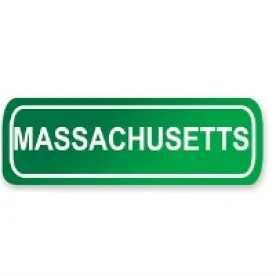Changes may soon be coming to Massachusetts noncompetition laws. Bill H4434, which passed unanimously in the House and was referred to the Senate Rules Committee last week, would adopt the Uniform Trade Secrets Act and enact the Massachusetts Noncompetition Agreement Act. The bill has yet to be approved by the Senate or the Governor, so its enactment is not guaranteed. Given its strong support in the House, however, a preview of the bill is in order.
We will be covering the bill as part of a two-part series, starting with Noncompetition Act. Next week, we will cover the Uniform Trade Secrets Act, which has already been adopted in 47 other states.
Massachusetts Noncompetition Agreement Act
The Massachusetts Noncompetition Agreement Act prescribes rules for noncompetition agreements arising out of employment relationships and applies to competition with the employer after employment has ended. The bill lists more than a half-dozen types of covenants that would be exempted from the new law although otherwise fitting within the statutory definition of a noncompetition agreement.
These exemptions include:
-
Covenants involving the solicitation or hiring of employees of the employer;
-
Covenants not to solicit business with customers of the employer;
-
Covenants made with someone who is a significant owner of a business entity when the agreement is made in connection with disposing the ownership interest of a business;
-
nondisclosure or confidentiality agreements;
-
Invention assignment agreements.
Nondisclosure agreements not exempted by the proposed statute and entered into on or after October 1, 2016 would have to meet certain requirements in order to be valid and enforceable. The requirements include both technical and substantive requirements.
The technical requirements are relatively straightforward. The agreement must be in writing, signed by both parties, and explicitly state that the employee has a right to consult with counsel prior to signing the agreement. Under the language of the bill, the agreement will have to be provided to the employee at a specific time to be enforceable: at the time of the formal offer of employment, or ten business days before the start of the employment, whichever is earlier. For contracts enacted after that deadline, an agreement will only be valid if it is supported by additional consideration — not just continuation of employment.
The substantive requirements of the bill are far less clearly defined and therefore may be subject to some interpretation. Overall, the bill requires that the content of noncompetition provisions be no broader than necessary to protect a legitimate business interest of the employer, and limits the amount of time such an agreement could be effective to 12 months from the cessation of employment. (This timeframe would be extended to 2 years under certain circumstances involving misbehavior on the part of the employee.) The bill would also limit the geographical scope of any such agreement, to limit the restrictions on the employee only to the extent necessary to protect the employer’s interests.
In addition, noncompetition provisions would not be enforceable against certain types of workers:
-
Nonexempt employees;
-
Students partaking in internships or other short-term employment while enrolled in undergraduate or graduate education programs;
-
employees that have been laid off;
-
employees age 18 and under.
However, if such a provision were included in a comprehensive employment contract, the inclusion of a noncompetition provision would not render the rest of the contract unenforceable. In addition, the bill gives courts discretion to reform agreements to render them valid and enforceable, or impose noncompetition conditions as a remedy for other legal wrongs, such as breach of contract or tort.




 />i
/>i

